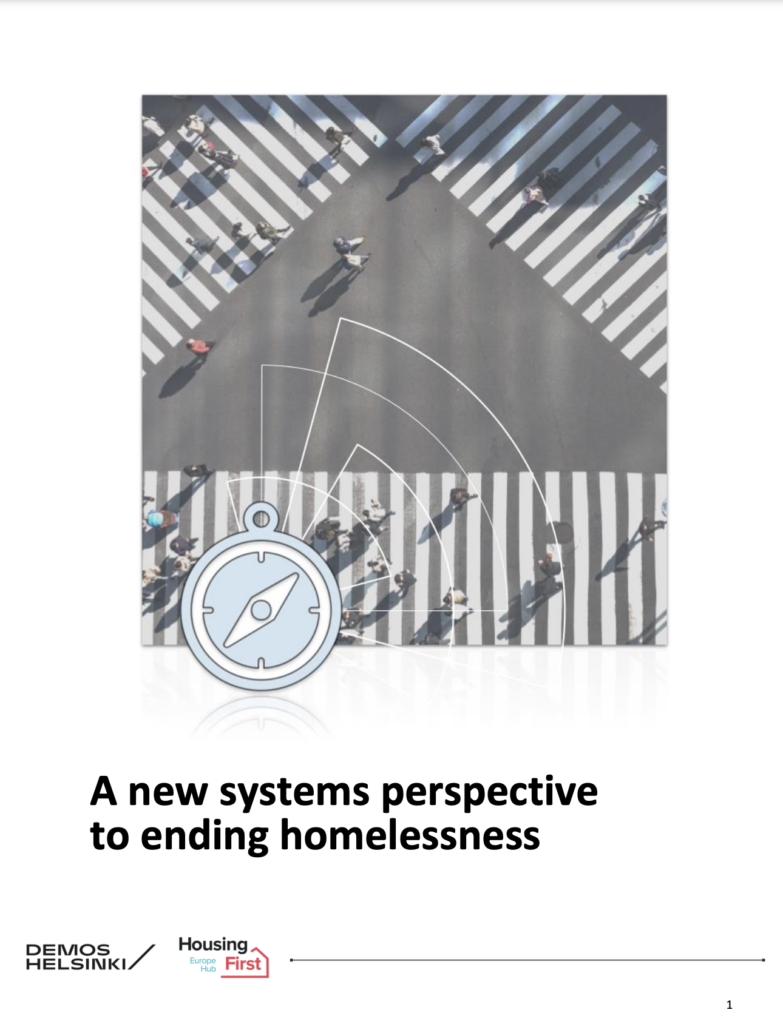Achieving an impactful decrease in homelessness — and preventing it from happening in the first place — requires significant structural and operational changes. While Housing First holds great potential to enable systemic change in homelessness, it also risks being interpreted and deployed as a mere housing management tool — a misunderstanding of tragic consequences.
To eradicate homelessness, governments must lead with direction, capacity-building, and sufficient learning. Only so will they unleash Housing First’s incredible potential.
Housing First is an approach to eradicating homelessness that prioritizes housing over other social support policies. Providing housing to the homeless may seem intuitive, but policies tend to spread their focus; for example, they may try to improve data or offer job opportunities. Housing First’s conviction is that no policies will work until people have a permanent and safe place of residence.
Housing First’s impact on homelessness has been most evident in Finland. Finland is the only country in the EU where homelessness is falling. Still, in many countries that have adopted Housing First, homelessness policies struggle to keep up with the growing need for new solutions as more challenges develop — such as mass migration and growing socio-economic inequalities. As a result, the debate around Housing First forms on whether it works.
Yet, achieving an impactful decrease in homelessness — and preventing it from happening in the first place — requires significant structural and operational changes. While Housing First holds great potential to enable systemic change in homelessness, it also risks being interpreted and deployed as a mere housing management tool — a misunderstanding of tragic consequences.
It was because of this risk that, through this project, we aimed to shift the debate from whether Housing First works to how it can enable systems change in homelessness policy. We thus identified:
(i) a set of preconditions that might favor systemic change across socio-political contexts and
(ii) how Housing First can be best leveraged as a catalyst for meeting them.
As with many social challenges, homelessness requires political will and consensus. We thus engaged decision-makers, advocates, experts and practitioners of Housing First through interviews and workshops to define meaningful ways in which Housing First can contribute to ending homelessness. In addition, we produced a comparative case study analysis of four European countries that have already started to implement Housing First (Finland, Scotland, Spain, and France) to explore their different journeys.
Our study revealed that Housing First is more than a policy. It has to be a mission. Housing First can provide us with a compass to navigate the complexity of homelessness only if we explore it as a form of governance.
What does such a shift from the policy to the governance perspective on homelessness mean in practice? Our analysis identifies three governance processes that are key to leveraging systemic change in the field of homelessness:
-
Directionality: nurturing long-term political and societal commitment that incentivizes key stakeholders to work towards eliminating homelessness;
-
Capacity building: connecting with those stakeholders that, by providing the needed flow of human and financial resources, allow to overcome such bottlenecks; and
-
Learning: establishing processes that, while allowing for failure, can identify critical bottlenecks that prevent continuous improvement and scale-up of Housing First’s implementation.
We collaborated with Crisis UK, Y-Foundation, FEANTSA, and the Housing First Europe Hub. Crisis UK funded the project.
Want to learn more about the project? Feel free to contact us:
Silva Mertsola
Transformative Governance Expert
silva.mertsola@demoshelsinki.fi
Iacopo Gronchi
Transformative Governance Expert
iacopo.gronchi@demoshelsinki.fi
Feature Image: Andrii Yalankyi/iStock


For genuine integration we need to re-think housing
Post
September 20, 2016
Infrastructure: The overlooked tool for societal transformation
Post
July 25, 2022
Transforming cities
Theme
November 11, 2024
Europe cannot simply build its way out of the housing crisis
Post
April 15, 2025
Initial comments on the European Commission’s Affordable Housing Plan
Post
December 18, 2025